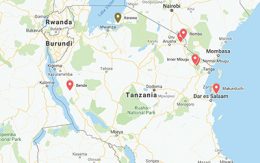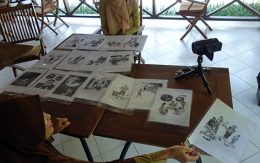Activities
Constructing a Theory of Tibetan and Himalayan Pastoral Culture—Based on systematic comparisons of folk vocabulary— (2020.4–2023.3)

About the Project
Project term: April, 2020–March, 2023
In two previous joint research projects, the basic traditional livestock cultural systems that had been fostered by pastoralists in Qinghai–Tibet were clarified. Therefore, based on these previous projects, this study focuses on livestock management and rituals, in addition to the use of the five main livestock resources: (i) milk, (ii) hair, (iii) skin, (iv) meat, and (v) dung and expands the vocabulary collection target to the pastoral areas in Tibet and the Himalayas. By mapping the folk vocabulary based on systematic recognition, a model of pastoral cultural theory is to be constructed that allows for regional, systematic comparison of cultures, cultural propagation, and the particular influences of neighboring regions.
Shiho EBIHARA, Project Coordinator (Fellow, ILCAA)
For details, please see here





